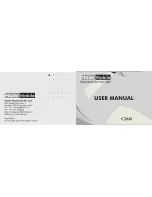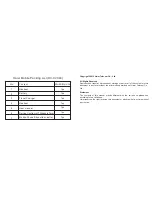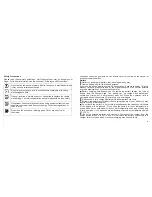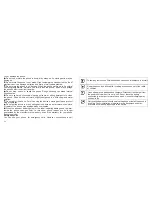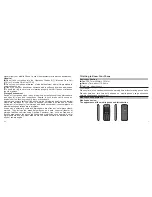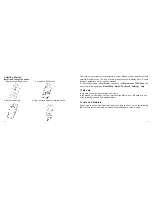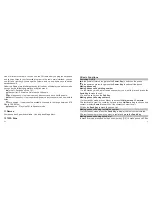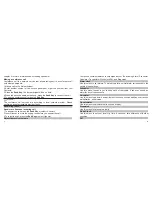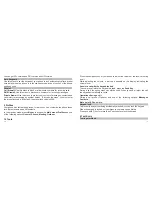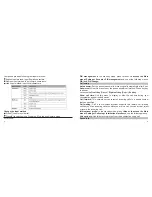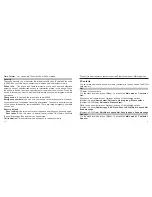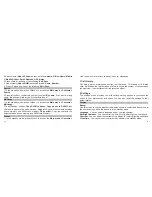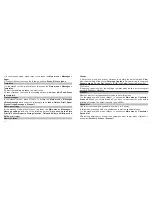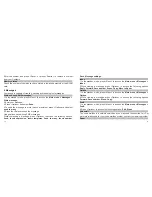
signals from your Mobile Phone. Consult the manufacturer to discuss alternatives.
Switch off your phone when in any area with a potentially explosive atmosphere,
and obey all signs and instructions. Sparks in such areas could cause an
explosion or fire resulting in bodily injury or even death.
Users are advised to switch off the phone while at a refueling point (service station).
Users are reminded of the need to observe restrictions on the use of radio
equipment in fuel depots (fuel storage and distribution areas), chemical plants or
where blasting operations are in progress.
Areas with a potentially explosive atmosphere are often but not always clearly
marked. They include the areas below decks on boats, chemical transfer or
storage facilities, vehicles using Liquified Petroleum Gas, such as Propane or
Butane, areas where the air contains chemicals or particles, such as grain, dust or
metal powders, and any other area where you would normally be advised to turn
off your vehicle engine.
Hospital
Storage Environment
Do not take your phone into the Operation Theatre (OT), Intensive Care Unit
(ICU), or Coronary Care Unit (CCU).
Do not use your phone at places of medical treatment where it is prohibited to
use mobile phones.
When you use your phone near someone who is suffering from a heart disease,
turn down the ring tone volume or vibration properly so that it does not influence
the other person.
24
1 Getting to Know Your Phone
Basic specification
Mobile phone appearance
Mobile phone view
The appearance of the mobile phone and introduction
Size: 100.7mm ×43mm ×14.1mm
Notice:
Standby time is the handset continuous working time without making phone calls.
Standby time and talk time both depend on mobile phone usage situations,
network situation and environment.
Standby Time: about 115 hours
Talk Time: about 5 hours
&
1

